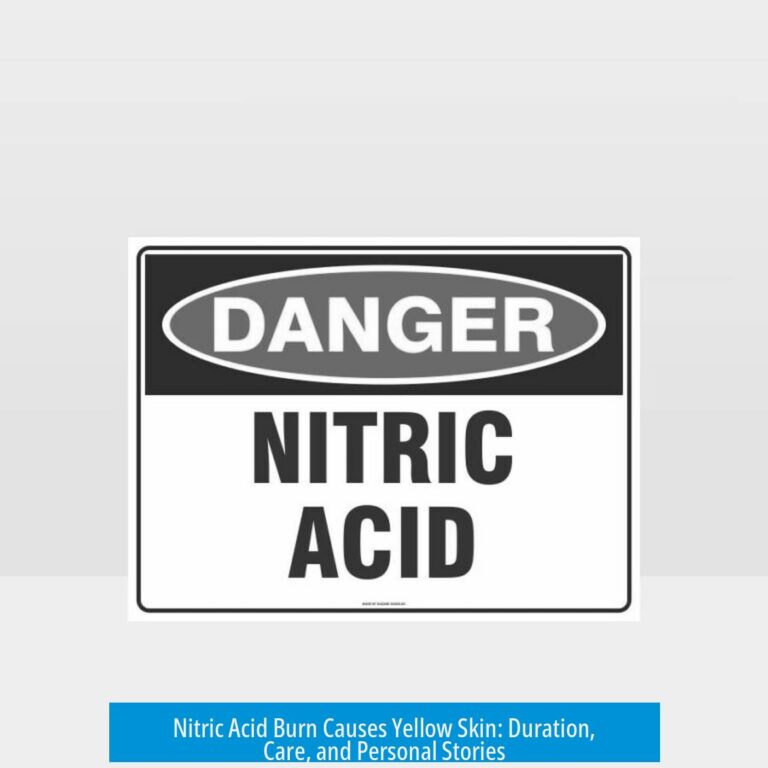Why Carbon-12 is an Isotope: A Simple Explanation

Carbon-12 is an isotope because it is a version of the carbon element with 6 protons and 6 neutrons in its nucleus. All isotopes of carbon share the same number of protons, which define the element as carbon. However, isotopes differ in the number of neutrons they contain. In the case of carbon-12 (written as 12C), this neutron count is exactly 6, making its total atomic mass 12.
What Is an Isotope?
An isotope is a form of an element that has the same number of protons but a different number of neutrons.
- Protons determine the element’s identity.
- Neutrons can vary, creating different isotopes of that element.
All atoms of carbon have 6 protons. But carbon atoms can have 6, 7, or 8 neutrons. These variations form the isotopes carbon-12, carbon-13, and carbon-14, respectively. The changing number of neutrons affects the atomic mass, but the element remains carbon because of the constant proton number.
Carbon and Its Isotopes

| Isotope | Protons | Neutrons | Atomic Mass Number | Stability |
|---|---|---|---|---|
| Carbon-12 (12C) | 6 | 6 | 12 | Stable |
| Carbon-13 (13C) | 6 | 7 | 13 | Stable |
| Carbon-14 (14C) | 6 | 8 | 14 | Radioactive |
Carbon-12 is the most common and stable isotope of carbon. Its balanced number of neutrons and protons makes its nucleus stable. Carbon-14, on the other hand, is radioactive and decays over time, which is useful in dating archaeological samples.
Common Confusions about Isotopes
People sometimes think isotopes must have a neutron number that differs from the proton number in a particular way. This is incorrect.
- The neutron number can be equal to, less than, or greater than the proton number.
- The defining factor for an isotope is the same proton number only.
- For carbon-12, having 6 protons and 6 neutrons is a valid isotope configuration.
There is no rule saying protons cannot equal neutrons in an isotope. The key characteristic is the proton count that defines the element, constant across isotopes.
Isotopes as Variants of the Same Element

The concept of isotopes can be viewed simply as “variants” of an element. This helps remove the idea that one isotope is normal and others are odd.
For example:
- Carbon-12 is one variant of carbon.
- Carbon-13 and carbon-14 are other natural variants.
- All isotopes coexist naturally, just with different abundances and properties.
Properties of Carbon-12 and Other Isotopes
Isotopes usually have the same chemical behavior because chemistry depends on electrons and protons.
- Chemical properties are mostly identical among carbon isotopes.
- Physical properties like mass, radioactivity, and nuclear spin can differ.
- Carbon-12 is stable and non-radioactive.
- Carbon-14 is radioactive and decays over time.
Carbon-12’s stability allows it to be the standard reference for atomic mass units.
Other Examples of Isotopes

Isotopes exist for all elements. A classic example is hydrogen:
- Hydrogen (1H): 1 proton, 0 neutrons
- Deuterium (2H): 1 proton, 1 neutron
- Tritium (3H): 1 proton, 2 neutrons
These variants show the same proton number but differing neutrons. This principle applies universally, including carbon.
Summary of Why Carbon-12 is an Isotope
- Isotopes share the same proton number but differ in neutron count.
- Carbon always has 6 protons; carbon-12 has 6 neutrons, making its mass number 12.
- Carbon-12 is a stable isotope and the most common form of carbon on Earth.
- Isotopes are natural variants, not “normal” versus “abnormal.”
- Chemical properties are the same; physical and nuclear properties can differ.
Can Someone Please Dumb-Down Why Carbon-12 Is an Isotope?

Here’s the straight talk: Carbon-12 is an isotope because it’s a version of carbon that always has 6 protons but exactly 6 neutrons in its nucleus. The number of protons stays the same—it’s what makes carbon *carbon*—but the number of neutrons can vary. That variance creates different isotopes like carbon-12, carbon-13, and carbon-14.
Now that you have the quick answer, let’s dig a little deeper without turning this into Brainiac 101, shall we?
Isotopes: The Same Element, Slightly Different Flavors
First up, what exactly is an isotope? Imagine isotopes as the different “flavors” of the same atomic ice cream. They all share one key ingredient—the number of protons. For carbon, that magic proton number is 6. No protons, no carbon. It’s like the DNA that defines the element.
So, isotopes have the same proton count but different numbers of neutrons. The neutrons are like the toppings that subtly change the texture or feel but not the core essence. For carbon:
- Carbon-12 (C-12): 6 protons + 6 neutrons = 12 total mass units
- Carbon-13 (C-13): 6 protons + 7 neutrons = 13 mass units
- Carbon-14 (C-14): 6 protons + 8 neutrons = 14 mass units
The number after carbon just tells you the combined count of protons plus neutrons, messing with the isotope’s mass.
Don’t Let Proton-Neutron Numbers Confuse You
It’s easy to trip up here. Some folks think that isotopes require different neutron numbers to be unlike the proton number. Nope, that’s wrong. Carbon-12 has exactly the same number of protons and neutrons—6 each—and that still makes it an isotope.
The defining feature is not the neutron-to-proton ratio, but the constancy of proton count. If the proton count changes, it’s no longer carbon. So whether the neutrons are equal in number, fewer, or more doesn’t matter for calling it an isotope.
Isotopes Are Just Variants, No ‘Normal’ Version
Think of isotopes as “variants” of an element rather than “normal vs. unusual.” Carbon-12 isn’t the “normal” carbon with others just weirdo cousins. They are all carbon, just slightly different versions due to neutron count variances.
It’s like smartphones—iPhone 12, 13, or 14 all belong to the same brand but differ in features. The brand is the proton number; the features are the neutrons.
Why Does This Matter? Physical and Chemical Traits
Now, you might ask, “If carbon-12, carbon-13, and carbon-14 all have the same chemistry, why fuss over isotopes?” Good question.
Chemically, isotopes behave almost identically because they have the same number of electrons and protons. But physically, they can differ big time:
- Mass: More neutrons mean a heavier atom.
- Radioactivity: Carbon-12 is stable; carbon-14 is radioactive and used in carbon dating.
- Reaction Rates: Slightly slower or faster reaction speeds due to mass differences.
For example, those who’ve had an MRI might unknowingly owe that tech to isotopes too. MRI scans look at the hydrogen-1 isotope specifically. So, isotopes have practical roles far beyond textbook definitions.
Comparing Carbon’s Isotopes to Other Elements
Carbon isn’t alone in this isotope game. Hydrogen’s isotopes provide a neat analogy:
- Protium (H-1): 1 proton, 0 neutrons
- Deuterium (H-2): 1 proton, 1 neutron
- Tritium (H-3): 1 proton, 2 neutrons, radioactive
All hydrogen isotopes have one proton. Neutrons switch up their mass and stability, just like carbon isotopes do. This reinforces the idea that isotopes vary only by neutron count.
Wrapping It Up: Why Carbon-12 is an Isotope
To sum it all up, Carbon-12 is an isotope because it has 6 protons (which makes it carbon) and 6 neutrons, distinguishing it as one variant among others with differing neutron counts (like carbon-13 and carbon-14). The proton count never wavers—that’s the atomic fingerprint—while neutrons can vary, defining different isotopes.
Remember, isotopes aren’t oddballs; they are simply the different editions of an element’s book, each with mild tweaks. The next time you hear “carbon-12,” think “version with 6 neutrons,” a stable, abundant, and essential player in the carbon family.
Got It? Or Still Puzzled?
If this made you go “Ah, okay now I get it,” then mission accomplished! But if you want to nerd out further or have specific isotope questions, ask away. Sometimes, science just needs a little chat over coffee (or a good meme) to make perfect sense.
What makes carbon-12 an isotope?
Carbon-12 has 6 protons and 6 neutrons. It’s an isotope because it shares the same number of protons as other carbons but differs in neutrons.
How do isotopes like carbon-12 differ from each other?
Isotopes differ in neutron count only. For carbon, C-12, C-13, and C-14 all have 6 protons but have 6, 7, and 8 neutrons, respectively.
Does the number of neutrons affect what element an atom is?
No. The proton number defines the element. Carbon always has 6 protons. The neutron count can change, creating different isotopes.
Are isotopes considered normal or unusual forms of an element?
All isotopes are normal variants of an element. There is no ‘normal’ versus ‘isotope’—just different versions based on neutrons.
Is carbon-12 stable or radioactive?
Carbon-12 is stable. Unlike radioactive isotopes such as carbon-14, it doesn’t decay and has a constant presence in nature.





Leave a Comment